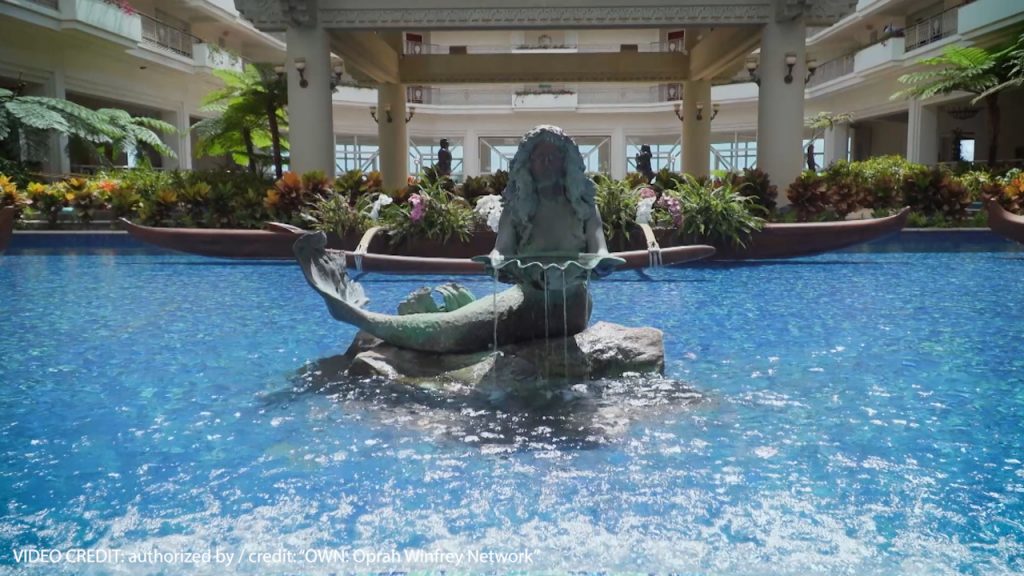Plan pitches hiking water rates on Maui’s thirstiest users: visitor accommodations

When severe drought puts Upcountry under water restrictions — looking down the hill at South Maui’s green hotel lawns can spark frustration for residents.
“It seems like the resort areas are getting preferential treatment and the rich people in Wailea can water their lawns without any kind of problems,” Norman Franco, county Board of Water Supply member, said during a meeting last week. “Of course, we know that they have a different water system. But If we intend to go on a more conservative approach on the use of water, it shouldn’t matter where the water is coming from, but how it’s used and being more fair in the . . . regulations.”
One way to reconcile the “perceived inequity” would be creating a new water category to hike the rate for the thirstiest users, typically hotels and other big visitor accommodations, according to a plan by Maui County Council Vice Chairwoman Keani Rawlins-Fernandez. Then it would encourage conservation or generate more county revenue for much-needed water infrastructure.
“It doesn’t seem that the egregious users will willingly conserve more — and one way to encourage and motivate the egregious user to use less is to increase the cost,” Rawlins-Fernandez said. “If we increase the cost and generate more revenue, perhaps we can provide more water to Upcountry.”
Rawlins-Fernandez at the Thursday board meeting presented updates to her plan, which was unveiled last year. Since then, the county Department of Water Supply outlined a path to create a new category, while voicing some concerns.
“One of the main concerns is making sure it generates enough revenue to cover its operating cost, to cover its (capital improvement projects) and all the expenditures,” Rawlins-Fernandez said.
Board Vice Chairwoman Nalani Kaninau questioned the department’s worry over generating stable revenue.
“I’m still not understanding how raising egregious users’ rates would lower revenue other than there would be less water usage by them, which is a good thing,” she said.
About 16 of the top 20 potable water consumers during fiscal year 2020 were hotels, timeshares and condominiums used for short-term visitor accommodations — all in South and West Maui, according to county data.
In fact, the top user — Grand Wailea, A Waldorf Astoria Resort — consumed more water during the pandemic shutdown year of 2020 than the year of 2019 when it was open, Rawlins-Fernandez said.
“I don’t even know how they did that,” she said. “They used more without any guests. Obviously there is something going on.”
J.P. Oliver, resort managing director, in response to Thursday’s meeting said that the resort has been making progress on water conservation.
“Grand Wailea is deeply committed to preserving Maui’s precious natural resources, and we have made significant strides to implement a comprehensive water conservation plan that has reduced daily water usage by 38% since 2018,” he said in a statement. “We look forward to building on this progress and achieving additional water savings by completing planned improvements to our aging water infrastructure.”
Average daily water use in 2020 and 2021 was down by 32% and 29%, respectively, compared to usage in 2019, according to the Grand Wailea statement. Also, it has invested more than $1 million in programs to save water at the property.
The top three users during fiscal year 2020 are the following: Grand Wailea (172,340,000 gallons), Fairmont Kea Lani (113,320,000 gallons) and Westin Kaanapali Ocean Resort Villas (81,589,000 gallons).
Rawlins-Fernandez said private water system Kapalua Water Co. charges $11.60 per 1,000 gallons for hotel and commercial users, which is almost double what the county charges at tier three rates.
Maui County has four categories for monthly charges: single-family residential, general use, agriculture and non-potable agriculture.
Single-family has four tiers for rates per 1,000 gallons: zero to 5,000 at $2.05; 5,001 to 15,000 at $3.90; 15,001 to 35,000 at $5.85; and greater than 35,001 at $6.55.
General use consumers have three tiers for rates per 1,000 gallons: zero to 5,000 gallons at $2.05; 5,001 to 15,000 at $3.90; and more than 15,001 at $5.85.
Agriculture has three tiers for rates per 1,000 gallons: zero to 5,000 gallons at $2.05; 5,001 to 15,000 at $3.90; and more than 15,001 at $1.10.
Non-potable agriculture is $1 per 1,000 gallons for all use.
Kaninau said she would like to see the proposal for a new category move forward.
“Important water conversations are happening that are a long time coming,” she said. “It’s not to punish the egregious users but they need to pay for the privilege of using or abusing our precious resource.”










